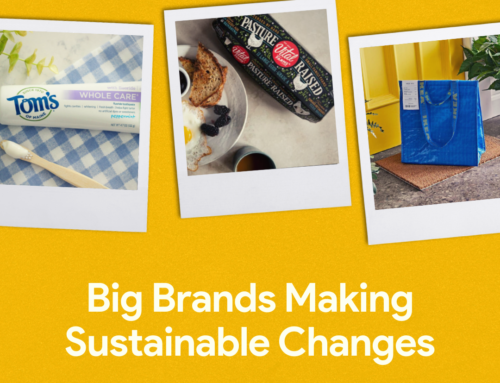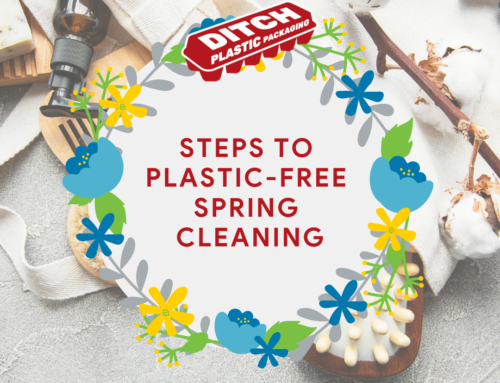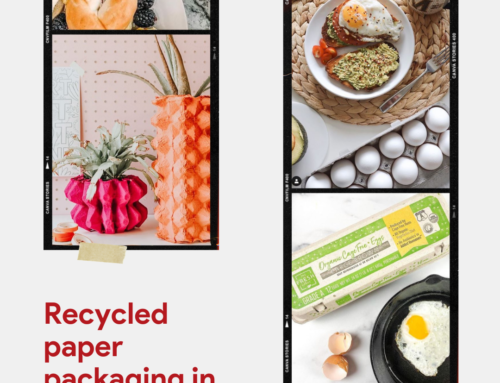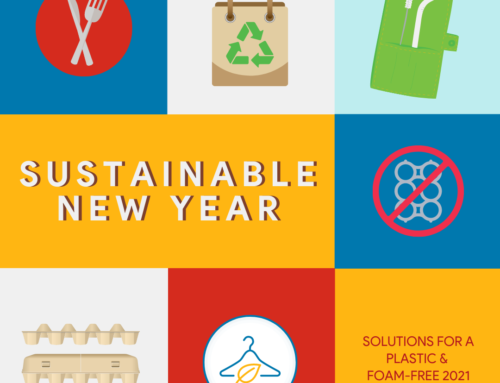Plastic and polystyrene foam waste is a significant problem but you can be apart of the solution. Every year 29 million tons of plastic and foam is produced, and sadly, 8 million tons of plastic ends up in our oceans. To stop this trajectory, we must make a change in our day-to-day lives and become conscious consumers. The workplace is a perfect place to start to reduce plastic and polystyrene foam waste. Make it a part of your company’s overall corporate social responsibility while reducing hundreds or even thousands of single-use items, lessen pressure on local recycling systems, and reduce unnecessary waste. Plus, having staff involved in the process can be educational and reflective. We have some simple tips to help you get started:
Plastic and polystyrene foam waste is a significant problem but you can be apart of the solution. Every year 29 million tons of plastic and foam is produced, and 8 million tons of plastic ends up in our oceans.
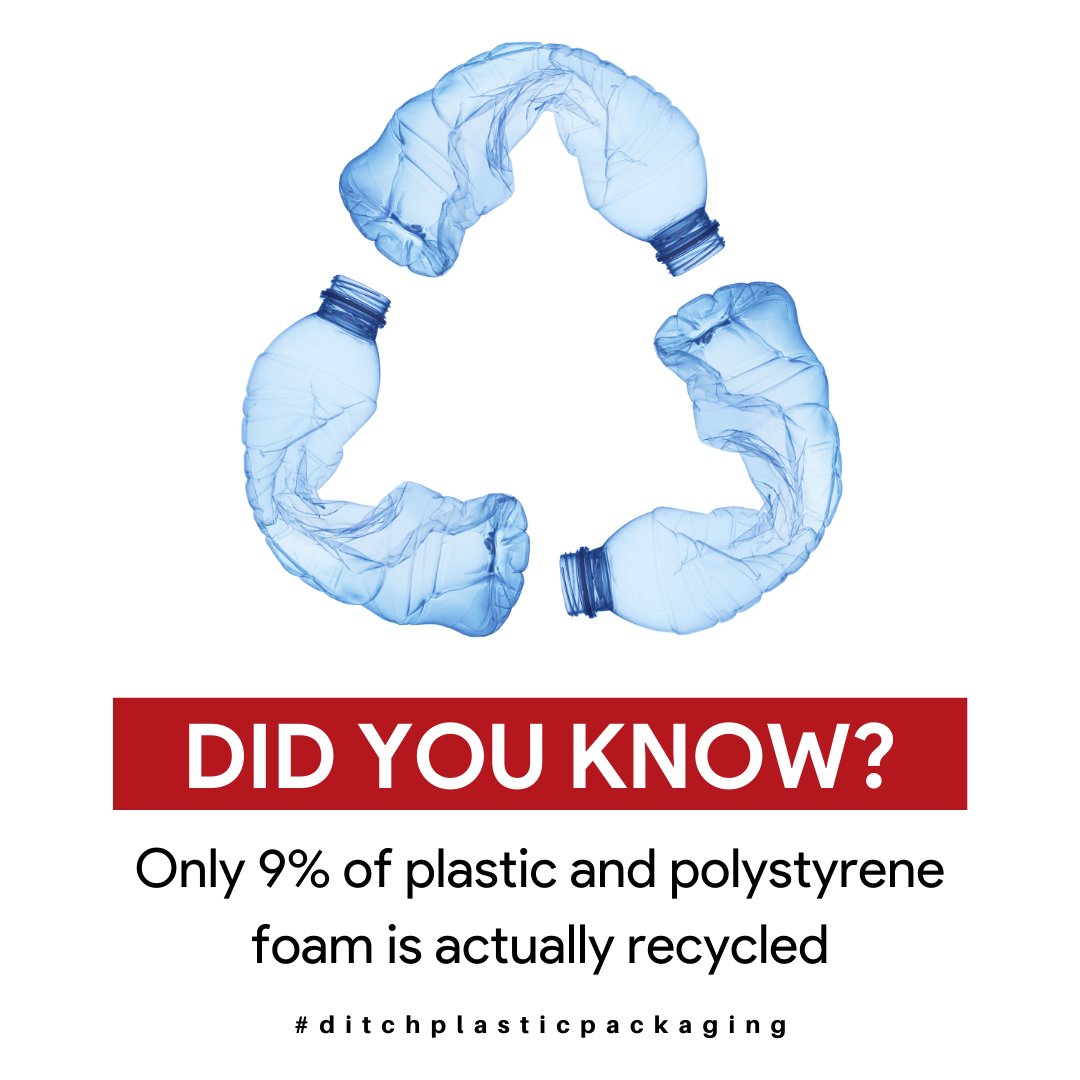
Do a recycling audit:
Only 9% of plastic and polystyrene foam is actually recycled so it’s important to evaluate your office trash and recycling bins and ensure that items are being disposed of correctly. In some instances, you may have to review your municipality’s waste collection policies to ensure the items you’re recycling are accepted. If some plastics are not recycled in your city, consider ways to replace these items in your office with a reusable option or more sustainable packaging.
Audit your workplace kitchen:
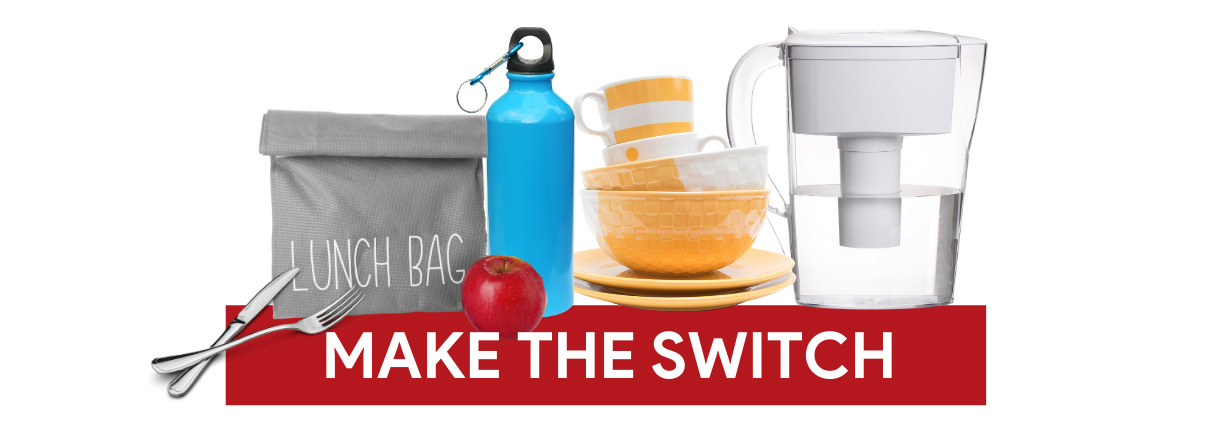
You may choose to refuse single-use plastic and polystyrene foam items in your office kitchen. Start by taking a look at which items are plastic or foam and think about ways you can replace them with long-lasting items that you can get multiple uses from. Below are a few suggestions to get you started.
Encourage your staff to purchase their own reusable lunch bag or box. This encourages staff to pack their own lunch in containers from home instead of ordering takeout that often comes in plastic or styrofoam containers. This will help to reduce your office’s waste and may improve the overall health and wellbeing of your team as well!
Instead of purchasing one-time-use cutlery and dishware for an office lunch or party, invest in a set of glass plates and silverware or have staff bring their own to use at the office. Single-use cutlery can take up to 1,000 years to decompose and their size and inconsistent material make them difficult to recycle. They end up in waterways and our oceans and are harmful to marine life. This easy switch can go a long way in reducing the harmful effects they have on our environment.
Replace single-use plastic water bottles in your office fridge by having staff carry their own stainless steel or glass bottles. Humans purchase about 1 million single-use water bottles per minute and 80% of single-use water bottles in the US become litter. Again, making this switch is an easy way to help reduce plastic waste. If the tap water is safe for drinking in your community, you can invest in a water filtration jug to refill or a water cooler program for your office.
Take the next step
The recycling bin and kitchen are the first step but if you or your office manager are looking for other ways to reduce plastic waste in your office, there are a few more suggestions to consider:
- Encourage employees not to purchase single-use coffee cups. Have them make their own at home or in the office with a mug of their own.
- Audit your office supplies and ask if there are alternatives to plastic pens, highlighters, bin liners, and food storage containers. Consider replacing plastic items with a more sustainable item like these Eco Pens!
- Use cloth or canvas bags when shopping for office supplies.
- Remove all single-use plastic straws from your office kitchen.
- Encourage other businesses or partner organizations to participate in a plastic and foam audit in their office as well.
- Have staff involved. Many of your co-workers will bring new ideas home with them and encourage their friends and family to make a change. The impact could be felt beyond your office.
Are you ready to ditch plastic packaging at work? Share the ways you’re doing this by tagging us using #DitchPlasticPackaging.
